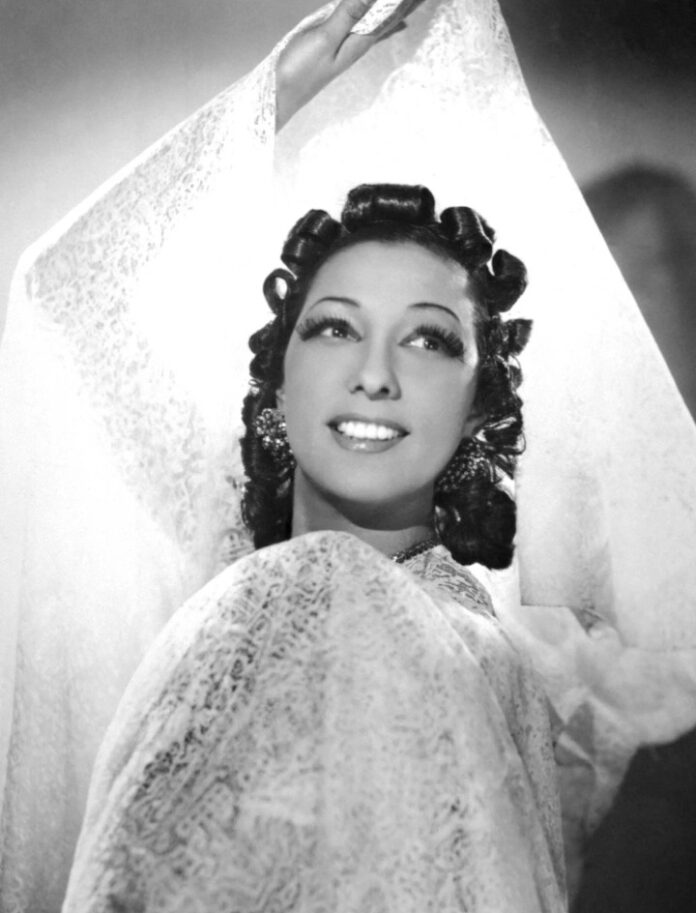Praised for her artistic career, actions as a civil rights activist, and her humanist values. France honours US-born cabaret performer and WWII resistance fighter Josephine Baker on Tuesday 28 December,2021 at the Pantheon, making her the first black woman to receive the honour. She joins figures that have indelibly marked French history,such as former minister Simone Veil, philosopher Jean-Jacques Rousseau,writer Victor Hugo, and scientists Pierre and Marie Curie. Baker is just the sixth woman honoured at the Pantheon, the final resting place of France’s most revered luminaries. Baker’s voice resonated through streets of Paris’ famed Left Bank as recordings from her extraordinary career kicked off an elaborate ceremony at the domed mausoleum.
Military officers from the air force carried her cenotaph along a red carpet that stretched for four blocks of cobblestone streets from the Luxembourg Gardens to the Pantheon. Baker’s military medals lay atop the cenotaph, which was draped in the French tricolour flag and contained soils from her birthplace in Missouri, from France, and from her final resting place in Monaco. Her body stayed in Monaco at the request of her family.
French President Emmanuel Macron paid tribute to “a war hero, fighter, dancer, singer; a Black woman defending Black people but first of all, a woman defending humankind. American and French. Josephine Baker fought so many battles with lightness, freedom, joy.”
“Josephine Baker, you are entering into the Pantheon because [despite being] born American, there is no greater French [woman] than you,” he said. Baker was also the first American-born citizen and the first performer to be immortalized into the Pantheon.
She is not only praised for her world-renowned artistic career but also for her active role in the French Resistance during World War II, her actions as a civil rights activist, and her humanist values, which she displayed through the adoption of her 12 children from all over the world. Nine of them attended Tuesday’s ceremony among the 2,000 guests.
“Mum would have been very happy,” Akio Bouillon, Baker’s son, said after the ceremony. “Mum would not have accepted to enter into the Pantheon if that was not as the symbol of all the forgotten people of history, the minorities.”Bouillon added that what moved him the most were the people who gathered along the street in front of the Pantheon to watch.” They were her public, people who really loved her,” he said.

A coffin carrying soils from the US, France and Monaco — places where Baker made her mark — were to be deposited inside the domed monument overlooking the Left Bank of Paris. Her body will stay in Monaco, at the request of her family.”World-renowned music hall artist, committed to the Resistance, tireless anti-racist activist, she was involved in all the fights that bring together citizens of goodwill, in France and around the world,” the Elysée said in a statement announcing the decision.
“For all these reasons, as she embodies the French spirit, Josephine Baker, who died in 1975, today deserves the recognition of the homeland.”
Born in St Louis, Missouri, in 1906, Baker had a difficult upbringing in the United States marked by poverty and racial segregation. She eventually became a performer in New York before travelling to France in 1925 to join a musical show at the Folies-Bergère theatre in Paris.
She went on to become a huge success in France with performances that accentuated many African stereotypes of the colonial time. She famously wore a banana skirt and became an icon of the city’s Jazz Age.
“I became famous first in France in the twenties. I just couldn’t stand America and I was one of the first coloured Americans to move to Paris,” Baker told the Guardian in a 1974 interview.
Her marriage in 1937 to Jean Lion is what eventually led to her becoming a French citizen.
At the beginning of World War II, she used social events to gather counter-intelligence information and in 1940 refused to sing for Germans in occupied Paris, according to archival records from France’s military.
Towards the end of the war, she performed for the French army while continuing her intelligence work for Charles de Gaulle’s staff.

In 1945, she went to Germany to sing with prisoners and deportees who were released.
She received France’s highest distinction, the Legion of Honour as well as a military decoration in a ceremony in 1961.
In the later years of her life, she was a vocal anti-racism activist, who spoke at the 1963 March on Washington where Dr Martin Luther King gave his famous “I have a dream” speech.
Sadly, towards the end of her life, she went into heavy debt and was eventually helped by Princess Grace of Monaco. She started her performing career again in 1974 just before her death aged 68 due to a cerebral haemorrhage.














Hi, I think your site might be having browser compatibility issues. When I look at your website in Safari, it looks fine but when opening in Internet Explorer, it has some overlapping. I just wanted to give you a quick heads up! Other then that, fantastic blog!
Thanks for this fantastic post, I am glad I noticed this internet site on yahoo.
I reckon something truly special in this website.
Really clean internet site, regards for this post.
I do agree with all the ideas you’ve presented in your post. They’re really convincing and will certainly work. Still, the posts are too short for starters. Could you please extend them a bit from next time? Thanks for the post.
Regards for this post, I am a big fan of this site would like to go along updated.
Very interesting points you have noted, thankyou for posting.
My wife and i ended up being absolutely contented that Raymond managed to conclude his research through the entire ideas he got through your weblog. It is now and again perplexing to just happen to be giving away tips and hints that many other people could have been trying to sell. We really know we have you to give thanks to because of that. These explanations you made, the simple web site navigation, the friendships you can make it easier to promote – it is most impressive, and it is helping our son and the family reason why the content is pleasurable, which is certainly extremely essential. Many thanks for the whole thing!